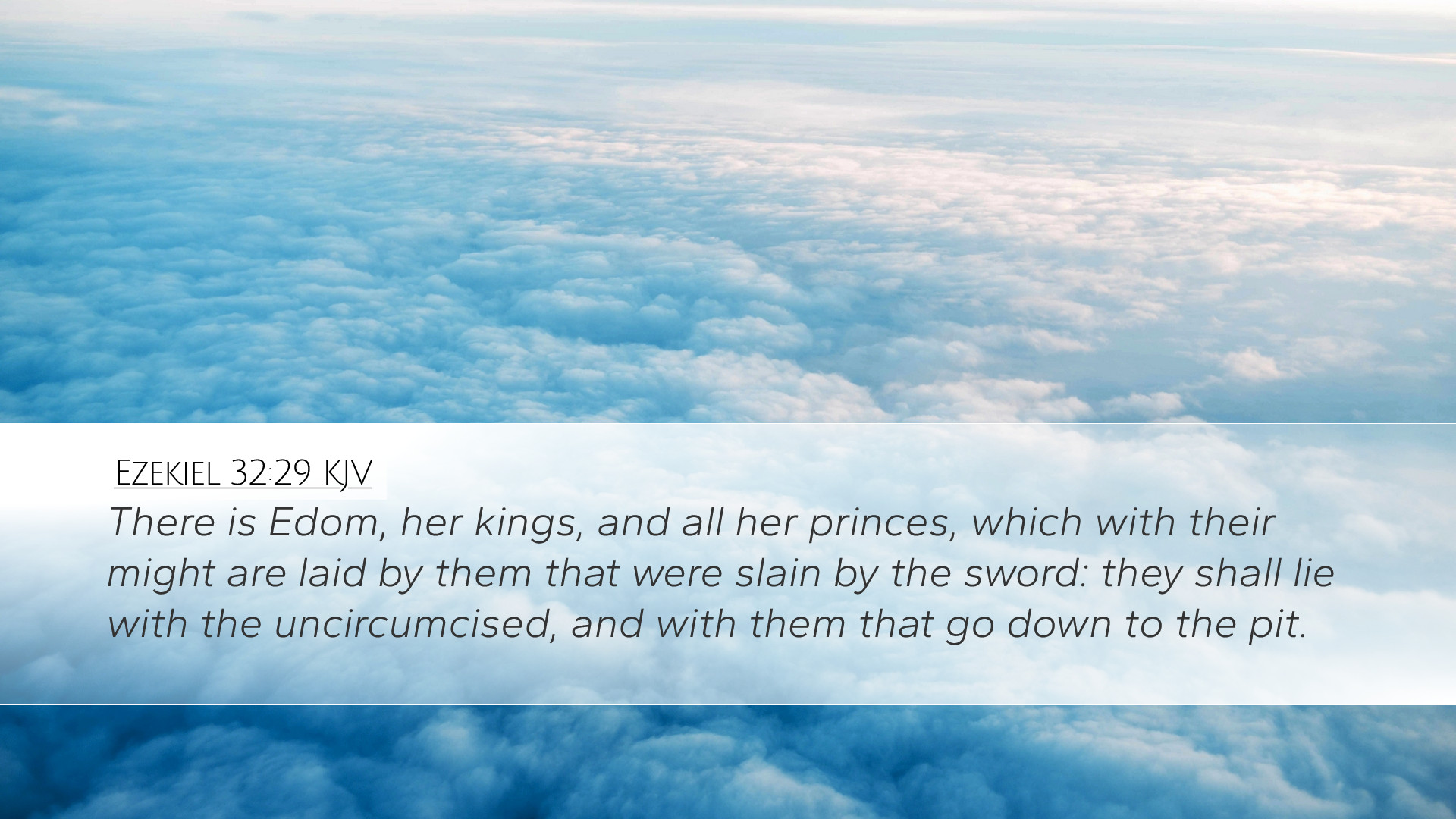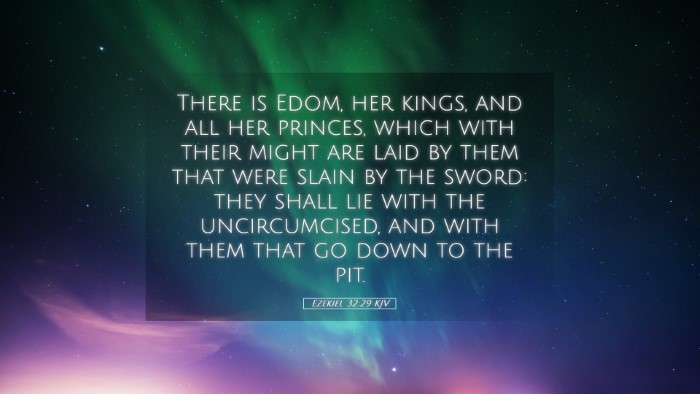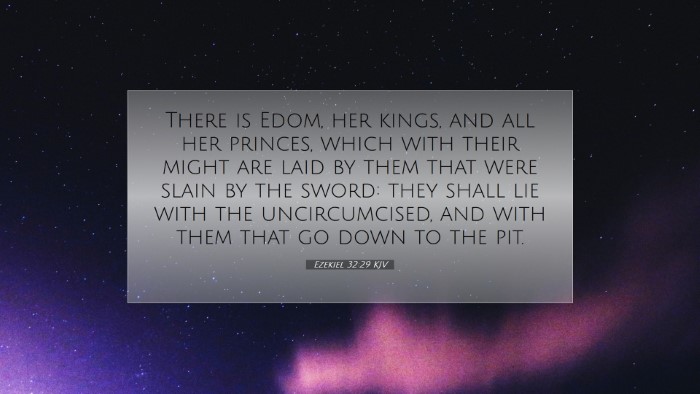Commentary on Ezekiel 32:29
Ezekiel 32:29 states: "There is Edom, her kings and all her princes, who for all their might are laid by with the slain: they shall lie with the uncircumcised, and with them that go down to the pit."
Overview
This verse is part of a larger passage in which the prophet Ezekiel proclaims judgment against various nations, portraying the fate of those who oppose God and His people. In this specific verse, the focus is on Edom, a nation often characterized by its animosity towards Israel.
Historical Context
The Edomites were descendants of Esau, the brother of Jacob, and they frequently occupied an antagonistic relationship with Israel. At this juncture, Ezekiel conveys a message about the downfall of Edom's leadership. Their kings and princes, who once exercised great power, are now depicted as powerless in death, alongside the uncircumcised who represent the pagan nations.
Commentary Insights
-
Matthew Henry's Commentary:
Matthew Henry emphasizes the certainty of God's judgment. He notes that despite the might of these kings, their fate is sealed. The imagery of lying with the uncircumcised signifies not only physical death but also spiritual separation from God's covenant people. It illustrates that regardless of earthly power, all fall under divine judgment.
-
Albert Barnes' Notes:
Barnes points out that the mention of the "princes" alongside the "slain" illustrates the totality of the ruin faced by Edom. The latter part of the verse stresses that for all their pride and strength, they are now held in the same fate as those who acknowledged no covenant with God. This serves as a profound lesson about the transient nature of power and the ultimate accountability before God.
-
Adam Clarke's Commentary:
Clarke highlights the distinction between the fates of Israel and Edom. While Israel may face judgment, there remains a promise of restoration. In contrast, Edom's fate is portrayed as final and irrevocable. He discusses the uncircumcised status as a mark of being outside of God's favor. Clarke elucidates the broader implications for nations that oppose God’s plan, suggesting their downfall is inevitable.
Theological Implications
This verse unveils profound theological truths relevant to pastors, theologians, and scholars.
-
The Nature of Divine Judgment:
One of the primary implications is the inescapability of God's judgment. Regardless of the might of nations and their leaders, total submission to God’s authority is required.
-
The Role of Covenant:
The covenant status of Israel underscores the dire consequences faced by those outside of it. The uncircumcised symbolize exclusion from God’s blessings, demonstrating the significance of covenantal faithfulness.
-
The Finality of Death:
The imagery of leaders lying with the slain illustrates the finality of death. Unlike earthly glory, which fades, spiritual allegiance to God offers eternal life—an offering that Edom ultimately missed.
Lessons for Today
For contemporary believers, this passage serves as a stark reminder of the sovereignty of God over all nations and peoples, emphasizing that reliance on human strength and pride ultimately leads to downfall. For pastors and teachers, it provides a compelling narrative illustrating the importance of fidelity to God's covenant. The lessons drawn from the fate of Edom stand as warnings against pride, idolatry, and the neglect of God’s will.
Conclusion
Ezekiel 32:29 encapsulates a powerful message about God’s judgment upon Edom that transcends historical boundaries. As we reflect on the insights from Matthew Henry, Albert Barnes, and Adam Clarke, we recognize the eternal truths about divine justice and the importance of covenantal faithfulness. Let this serve as an encouragement for godly living and a strong reminder of the consequences that arise from disenfranchisement with God.


